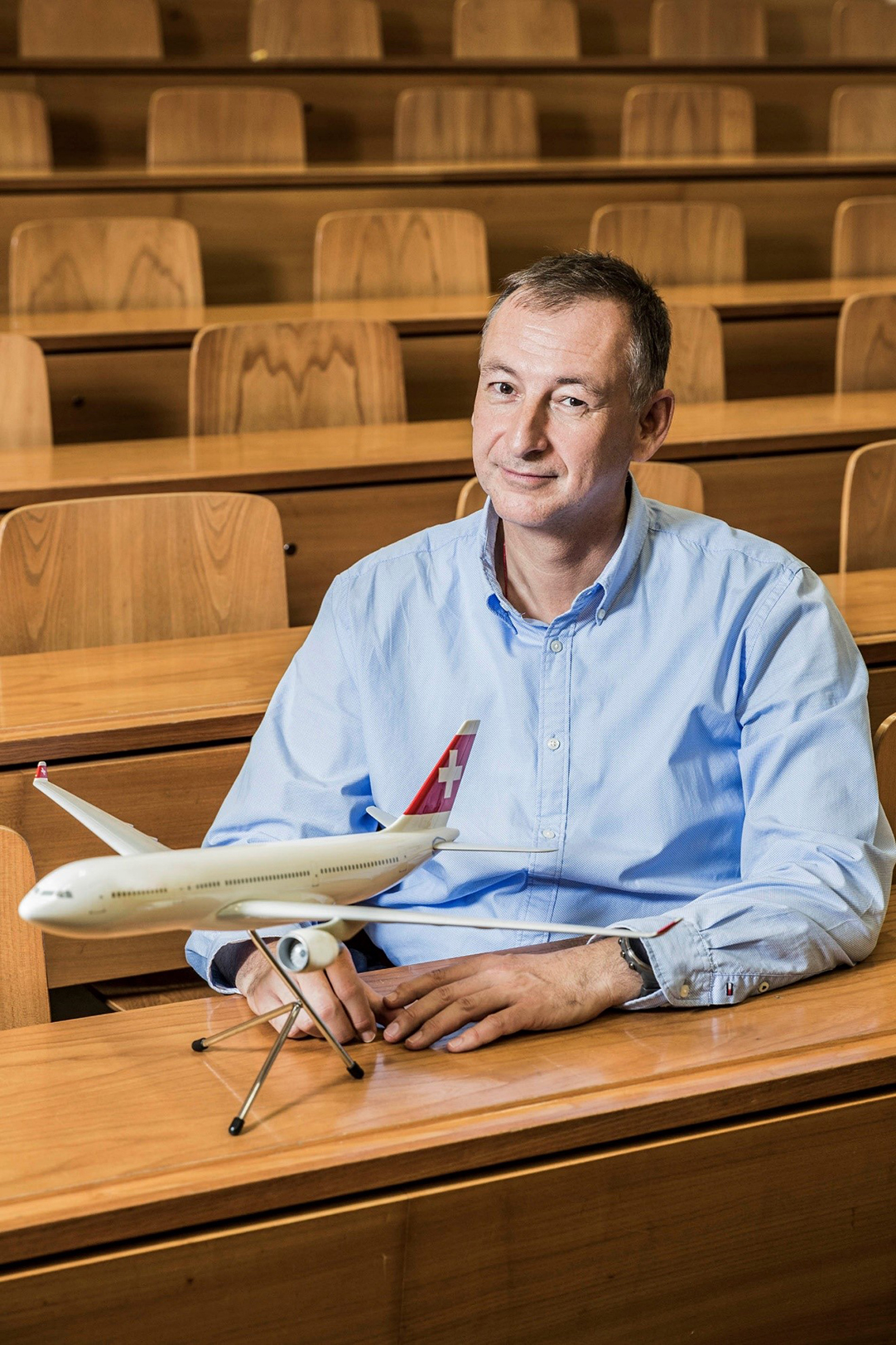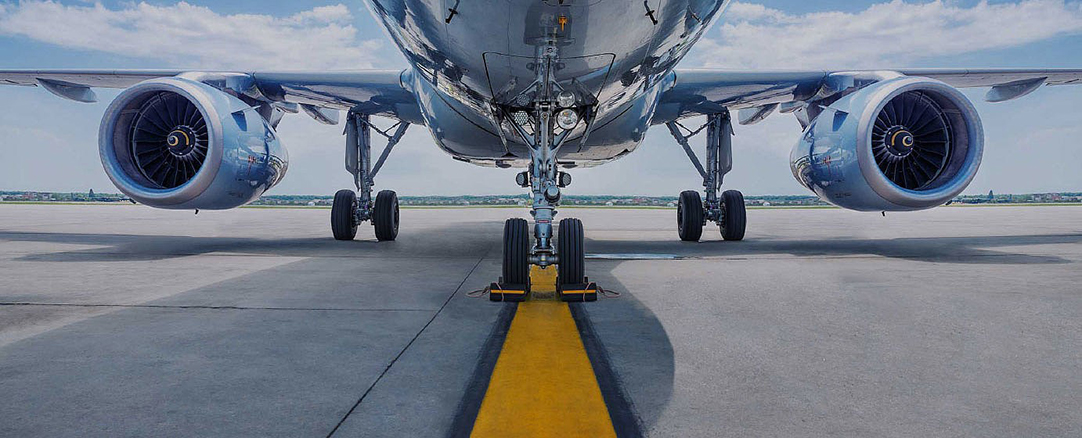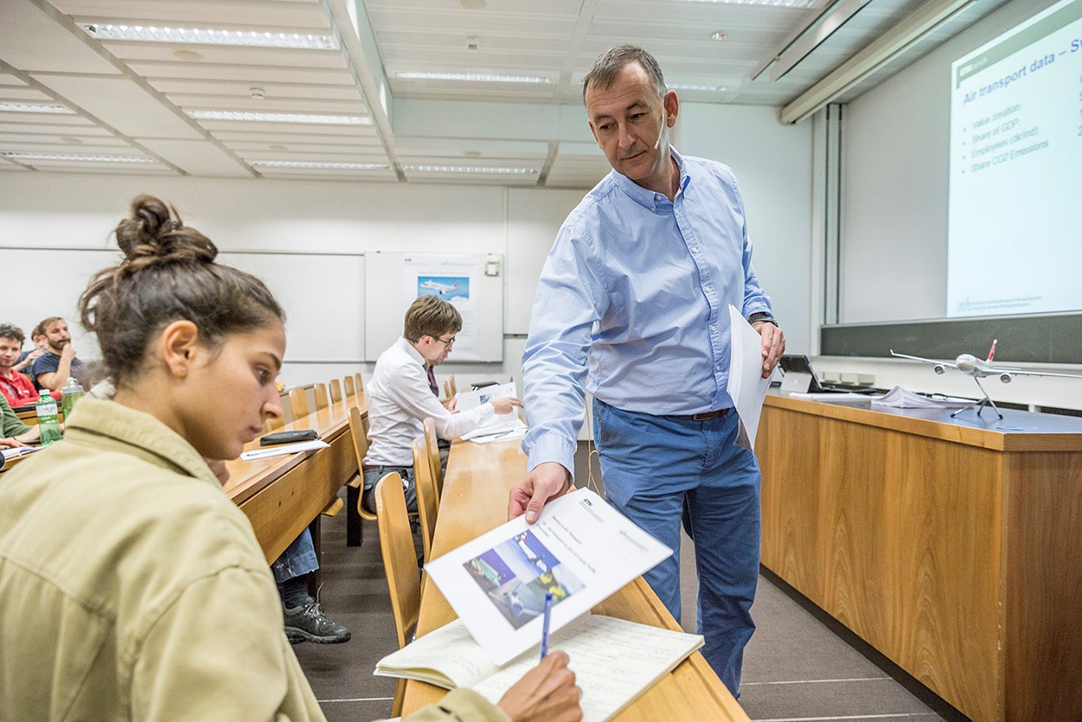– connecting our global business network
23 December 2020
An Aviation Pilot and Pioneer Taking Flight for the Planet

Dr Peter Wild
Pilot, Commander and Flight Instructor, SWISS International Air Lines
Program Manager and Lecturer in Aviation & Sustainability, Swiss Federal Institute of Technology (ETHZ)
Founder & Managing Director, CarbonCare
President of the Commission for Education, Research and Innovation of AEROSUISSE
Doctor of Business Administration
Dr Peter Wild has plenty to be proud of over his illustrious three-decade career in aviation and sustainability.
From his time in the military flying planes in rescue operations and becoming the youngest commercial pilot flying Boeing 747s, to the top of business operations and project management at leading airlines and universities. He’s been instrumental in so many aviation sectors across Europe, particularly in his home country of Switzerland.
Most notably he is a sustainability pioneer in the industry and his role as an aviation emission consultant has been increasingly important. Among much push back and scepticism in the nineties, he championed sustainability and researched ways in which emission reduction was not only a win for financial bottom lines, but an important step for the planet.
In total, he has flown more than 40 aircraft types and clocked 15,000 flight hours. He now helms Aviation at the Swiss Federal Institute of Technology (ETHZ), one of the leading business schools in the world, and teaches his highly rated and coveted courses that he conceived himself.
There’s very little his expansive knowledge and experience doesn’t cover.
Even as a young boy, Peter dreamed of flying planes. However, it was only a dream as at the time in Switzerland, very few actually made it to the cockpit. Never one to shy away from a challenge, he worked hard and eventually was selected as one out of 2000 prospective students.
At just 17-years-old he became the youngest pilot in Switzerland.

Reflecting on his career from his home nestled in the beautiful snow-capped mountains of the alps just outside of Lucerne, he says, “From the very beginning I had a love of aviation, but I didn’t ever believe I would make it in the end. I didn’t expect it at all actually.”
“Sometimes dreams come true.”
After a couple years in the military and the Swiss Air Force, Peter joined the Swiss Rescue Team as a pilot and completely more than 500 rescue mission in four years. Still at 25, when he joined Swissair, out of his entire class of aspiring pilots, he was still the youngest and then became the youngest pilot on the company’s Boeing 747 (Jumbo) long haul fleet.
A natural leader and talent for understanding the industry, he was fast advancing within the company, and in an effort to be eligible for more executive roles and the leadership team, SWISS supported Peter furthering his study, first to IMD (Lausanne) for law and business, and then a Doctorate of Business Administration at the University of South Australia.
Eventually enrolling in UniSA was a fortuitous coincidence. The Swiss Business School in Zurich has a relationship with UniSA, so Peter could study in his home of Switzerland and also be visited by UniSA professors travelling to Zurich and attend their lectures with the business school.
It just so happened, being heavily influenced by the North American approach to aviation, Peter was looking for a more global outlook, and the Asia Pacific region was the perfect place to explore these equally important perspectives and insights.

The Aussie approach focus of qualitative over quantitative methods in his dissertation, in the area of strategic airline management approved by MIT (and their International Center for Air Transportation), and that all important global perspective, catapulted Peter into a number of high-powered roles, including Swissair`s management team as Manager Policies and Procedures introducing the New European Aviation Law (JAR-OPS) and becoming President of the Commission for Education, Research and Innovation (AeroSuisse) and member (regional President) of the National Transport Commission in Switzerland.
It was in the latter role Peter, and his unique expert perspective, was approached by Vice President of the Federal Institute of Technology (ETHZ) to establish an aviation course with the university.
He started the course in 2013 with just 20 students, but word got out and popularity grew, and numbers quickly shot up. Two years later, the team introduced a second course and today, they have almost 300 students a year and both courses are the among the best rated programs at ETHZ.
“Part of our success is our credo and one governing principle: teach like it is the real world.”
“I always say to my colleagues – who are also some of the best teachers in the industry as well – it's important that we aren’t distracted by the theory. We have to teach them how it actually happens in the real world.”
“We tell them stories – stories about what is happening out there in the world, what they have to expect, what are the common problems. We show them realistic figures, booking figures from the airline business or real results. So, it’s not manipulated or artificial.”
“The students love this real-world approach and really respond to it.”

Amongst all this success, a through line throughout his entire career has been a focus on sustainability. While climbing the ranks at SWISS, Peter became Senior Manager Operational Efficiency. A new position which was based on his idea to reduce fuel costs and reduce emissions.
Many were sceptical, but only a few years later (and tens of millions of dollars saved) all airlines were interested in his knowledge and the International Civil Aviation Organization (ICAO) asked him to join the Working Group Emissions as an Expert.
His career as a sustainability consultant continued to be fruitful and thanks to his relationships with ETHZ, SWISS and Lufthansa, invested research in the area of emission calculations for all kind of transports – train-road-air-inland waterways-sea. This resulted in the establishment of a new company CarbonCare.
“We calculate emissions from transportation and logistics worldwide and compensate the CO2.”
“Investment in this area is so important - not only for CarbonCare or the University – it's vital for the earth and we need to achieve our goals for the future. For the sake of the planet.”
“The goal is to reduce emissions by 50% in 2050 compared to 2005. We still have 30 years ago, but it needs to happen in the next 15 to 20 years, because you have also test and implement it.”
“We’re fighting against time, but I like a good challenge.”


